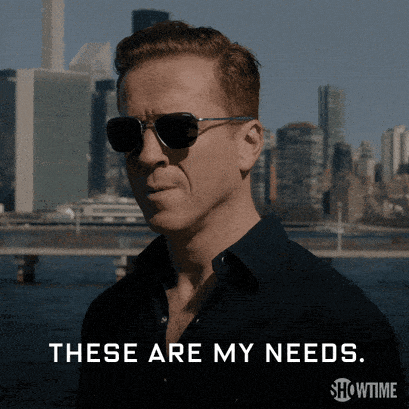A fundamental part of knowing ourselves is being in touch with our needs. And if there’s one thing that creates a great deal of confusion, shame, and even apathy for humans, it’s our needs—knowing, meeting, articulating, and owning them. How are we supposed to know about and embrace something, though, that we weren’t taught much about in the first place and that prompts shame and fear?
Thanks to growing up during what I call the Age of Obedience, where communicating, disciplining and interacting with children centred on making us excessively compliant, especially with authorities, we became disassociated from our needs, desires, expectations, feelings, and opinions.
Throw in that 1) needs weren’t something that humans talked about, and 2) we may have grown up in an environment where we came to believe that there was no point in voicing ours because they’d be ignored, rejected, or “too much”, and we might have low awareness of our needs and fear being the likes of “needy”, “difficult”, and “selfish”.
In fact, many of us learned to hide and downplay our needs in the name of being “low maintenance”, prioritising others, and protecting ourselves. In doing so, we’ve convinced ourselves (and maybe certain people in our lives) that our needs don’t exist or are less important.
All humans have needs, anything that’s essential and critical to our well-being. They’re what’s necessary for us to be, do, have, and experience for us to survive and thrive in being ourselves.
Think basic provisions and functions that essentially keep us alive, our state of being and living, items, relationships and experiences that facilitate our survival and thriving, and the emotional states we experience as a result.
Examples of needs
Safety and security
To be known and seen
Belonging
Love, care, trust, and respect
Rest, sleep, relaxation
Movement, food, water, shelter, air
Nurturance
To give and receive attention and affection
Intimacy and connection
Communication
Authenticity
Status
Empathy, consideration, compassion
Purpose, meaning, and goals
Space and solitude
Power
Freedom
Stability
Control
Support
Autonomy
Physical, mental and spiritual well-being
Connection to something beyond ourselves — community, ideals, beliefs
Creativity
To be stimulated and stretched (not the same as being stressed!)
Sex/sexual expression
To be needed
Recognition
We are emotional creatures—our inner state provides clues about what we need, the health and integrity of our thoughts, actions and choices, and what may or may not be going on in our outer world. Our feelings make us act (or not), including fight-flight-freeze-fawn. As a result, our needs are emotional needs in that how we consistently feel, seek, think, and do lets us know how well our needs are met, and our feelings also indicate specific needs.
For example, if we rely on our work and romantic partners to make us feel good, and believe we’re not “good enough”, how we feel as a result (i.e. pretty shite and anxious), lets us know that the way we’re going about trying to meet underlying needs—e.g. intimacy, connection, recognition, validation—isn’t working too well. It also lets us know that we’re trying to meet old unmet needs from the past and that our approach causes us to abandon and neglect ourselves.
But let’s say we don’t typically experience anxiety, and then we do; the specific context of the situation or the events that precipitated it offer clues about why we’re experiencing it and what we need. So, you see someone in a similar line of work to you on Instagram. You compare yourself to [whatever they’ve announced/displayed] and now you feel uncertain, behind and dissatisfied even though, technically, your circumstances are no different from five minutes before. What you need is to close Instagram, have some empathy and self-compassion, and keep it real by reassuring yourself.
Hunger, for example, lets us know we’re hungry and that we need to eat.
Getting hangry (hungry and angry)—cough, an old habit of mine—lets us know we’re over-hungry due to having skipped the basic need for food and sustenance in favour of pursuing other needs that may feel more important. For example, the status and recognition that comes with pushing ourselves to please our bosses might seem more important than fulfilling basic needs like peeing, taking breaks, eating, and resting.
Resentment lets us know that we’ve made ourselves do something ‘for others’, typically from a place of guilt or obligation and that we’ve overgiven and wound up feeling shortchanged and owed. We’ve overridden our needs for the benefit of others, aka people pleasing, and it does not feel good.
Let’s talk about wants for a moment
Needs are different from wants, although many humans treat them as one and the same.





